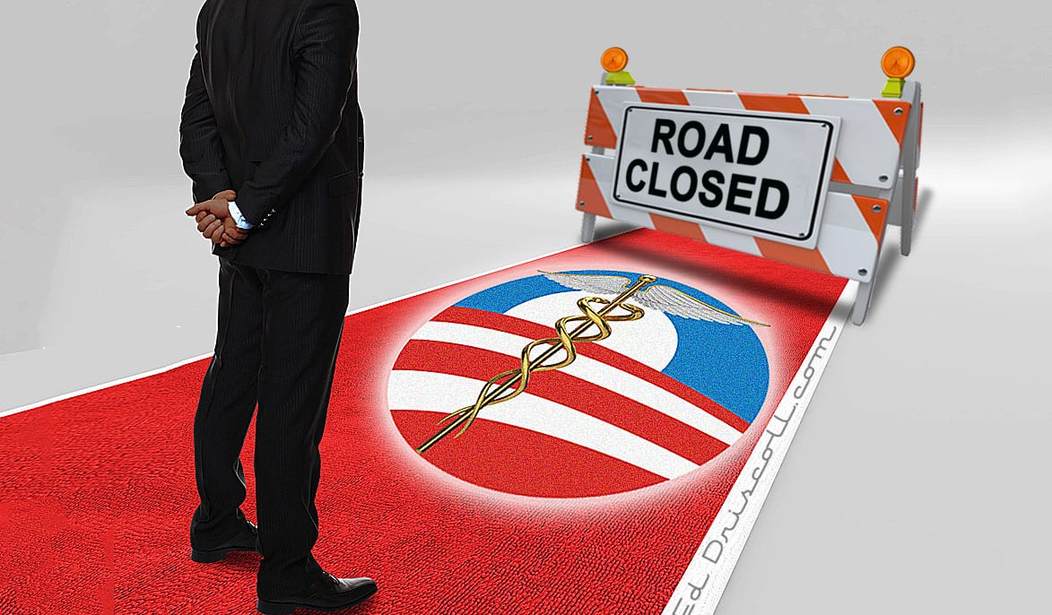The Trump administration is mulling the possibility of ending an important Obamacare subsidy to insurance companies.
Currently, the government subsidizes a program mandated by Obamacare that requires insurance companies to lower deductibles and out of pocket expenses for low- and middle-income consumers not eligible for Medicare or Medicaid, or who are unable to get insured through their employer. Because of these subsidies, known as the cost-sharing reduction (CSR) subsidies, insurance companies can afford to cover about 7 million Americans as well as keep premiums lower than they would be for everyone else.
Eliminating the subsidy would force more insurance companies to abandon the Obamacare market thus speeding the process of disintegration for the ACA. Premiums would skyrocket and the entire private health insurance market would be thrown into chaos.
At least, that’s the argument of those who wish to keep the subsidies as they are.
Many advisers oppose the move because they worry it would backfire politically if people lose their insurance or see huge premium spikes and blame the White House, the sources said. Trump has said that the bold move could force Congressional Democrats to the table to negotiate an Obamacare replacement.
Lawyers and other administration officials are trying to thread the needle.
Trump told aides in a Tuesday Oval Office meeting that he wants to end the payments to insurers because he doesn’t gain anything by continuing them, according to a senior White House adviser. “Why the hell would we?” he asked about continuing the payments, according to the adviser. Trump added that if Congress wants the subsidies, lawmakers would find a way to pay for them, the adviser said.
Trump has previously expressed conflicting opinions on the issue. Insurers have been pressing for certainty as they plan for next year.
The payments, estimated at $7 billion for this year, go to insurance companies to reduce deductibles and other out-of-pocket costs for low-income consumers — an estimated 7 million people in 2017. Insurers are on the hook under the health law to keep paying even if the federal money stops.
Complicating matters is a lawsuit brought by House Republicans against the Obama administration that claims the subsidies are illegal because Congress never authorized the money to pay for them.
On Monday, the Trump administration has to inform the U.S. Court of Appeals for the District of Columbia how it wants to resolve a lawsuit the House Republicans brought against the Obama administration saying the White House was making the payments without congressional approval. The White House and House could also ask for a 90-day hold on the case.
Some in the administration are hoping to persuade Trump to change his mind. Mick Mulvaney, the administration’s budget director, is more “agnostic” on the issue, according to a person close to him, and has presented Trump with options other than immediately suspending the funding.
The lawsuit is moving ahead against the backdrop of the effort on Capitol Hill to repeal the Affordable Care Act. Any bill would be expected to unwind the health law over at least a year. But defunding the cost-sharing program could destabilize the market immediately.
The CSR subsidy underlines the conundrum of repealing Obamacare. The law, like a poisonous vine, snakes through the entire health care system in America. You can’t simply wave a magic wand and get rid of it. Ripping out Obamacare’s roots is a delicate matter that needs to be done so that the fewest number of people and companies are adversely affected.
It’s not only millions of people’s health insurance at stake; it’s the entire private health insurance industry, the fate of which is tied directly to Obamacare. For the dozens of right-wing Republicans in safe districts, it doesn’t matter. Most of their constituents are shielded from the deleterious effects of outright Obamacare repeal.
But the majority of GOP congressmen and senators don’t have that luxury. So an effort will be made to either pay for the subsidies in some way or replace them with something else.
And perhaps looking for a compromise on this subsidy will change the dynamics of health care reform, which currently makes it difficult for the Republican Senate to act.










Join the conversation as a VIP Member